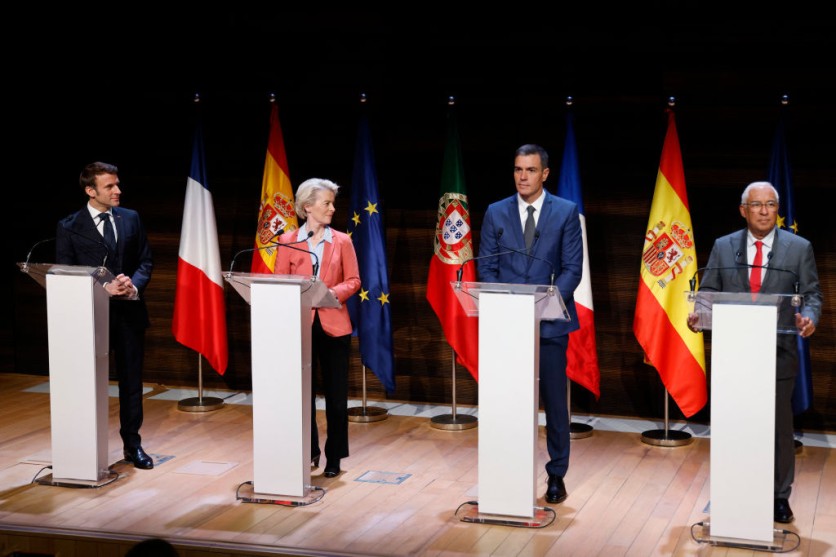France, Spain, and Portugal will all be teaming up for an ambitious project or building a huge undersea pipeline that will deliver hydrogen from the Iberian Peninsula to France, with hopes of expanding it to the whole European continent, according to a report by AP.
The pipeline, known as H2Med, is expected to transport almost 2 million metric tons of hydrogen to France each year, or 10% of the expected demand for hydrogen in the European Union (EU), according to Spanish Prime Minister Pedro Sánchez.
It is anticipated that the project will cost 2.5 billion euros ($2.6 billion) and will be finished by 2030.

The H2Med Project
The proposed project was also motivated by the ongoing energy crisis brought on by Russia's invasion of Ukraine last February. The countries hope that through this pipeline, they can increase the energy supply dependence of the EU.
The declaration was made following a meeting in the eastern Spanish city of Alicante with Sánchez, European Commission President Ursula von der Leyen, French President Emmanuel Macron, and Portugal's Prime Minister António Costa.
"Reducing our emissions to protect our climate, supplying our territories with clean energy to reindustrialize and strengthen our strategic autonomy, these are the objectives we are aiming for with the H2Med project, the first stage of a major European hydrogen network," Macron said in a tweet.
Macron also revealed that H2Med will travel a new route via the Mediterranean and depend on hydrogen technology, replacing an earlier plan to transfer gas across the Pyrenees Mountains.
In October, Portugal, Spain, and France reached a comprehensive agreement on the proposal. They intend to submit it to the European Commission by December 15 to qualify for EU funding, which may cover up to 50% of the expense.
The project will first link two plants in northern Portugal and Spain, and then it will comprise a pipeline running from the port of Barcelona in northeastern Spain to Marseille in southern France.
Réduire nos émissions pour protéger notre climat, fournir à nos territoires une énergie propre pour réindustrialiser et renforcer notre autonomie stratégique, voilà les objectifs que nous visons avec le projet H2Med, première étape d’un grand réseau européen d’hydrogène. pic.twitter.com/wUYFyNIDyX
— Emmanuel Macron (@EmmanuelMacron) December 9, 2022
EU's Energy Security and Strategic Autonomy
Sánchez claims that this project is important in establishing the EU's energy security and strategic autonomy, especially during the energy crisis at the height of the Russia-Ukraine war.
He also hopes that the undersea pipeline will set a standard for hydrogen technology not just in Europe but also globally.
According to Von der Leyen, hydrogen will be a game-changer for Europe. She also revealed the EU's plan to buy an additional 10 million tons of renewable hydrogen and create 10 million metric tons of it by 2030.
Macron also said that he will meet again with the Spanish Prime Minister on January 19.
"We will continue to work together, dear Pedro. And because our countries have so much to share, our peoples have so much in common, we will see each other on January 19 in Spain to continue moving forward together," the French President tweeted on Friday.
Related Article : EU's Artificial Intelligence Act is Moving Towards Countering the Risks and Dangers of AI

ⓒ 2025 TECHTIMES.com All rights reserved. Do not reproduce without permission.




